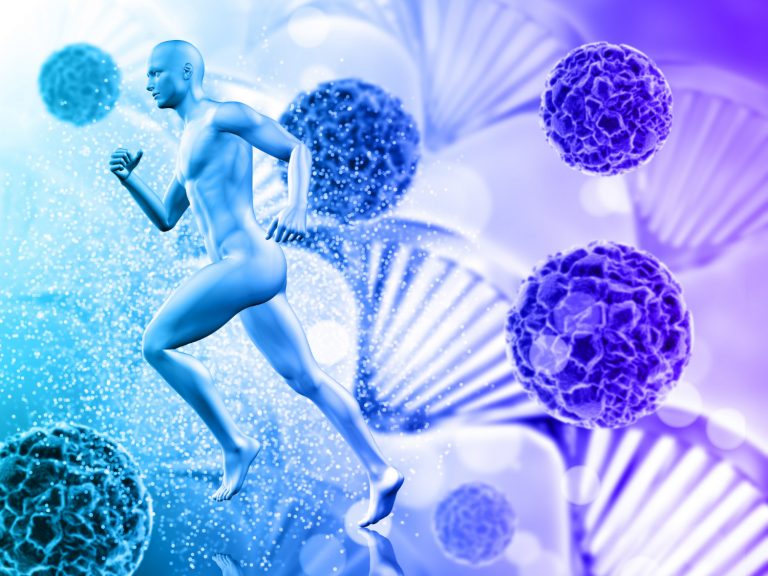Your DNA is the blueprint of your life, holding the secrets to your health, vitality, and even your future. DNA repair is crucial because every day, your cells face damage from environmental factors, stress, and even normal metabolic processes. The good news? You can support your DNA’s resilience through nutrition. Let’s dive into the seven essential nutrients for DNA repair you need now.
Contents
What is DNA Repair and Why Does It Matter?
DNA repair is the process by which your body identifies and corrects damage to the DNA molecules that encode its genome. This is vital for maintaining your health, preventing diseases, and ensuring your cells function properly. When DNA isn’t repaired, it can lead to mutations, which may contribute to conditions like cancer and premature aging.
So why should you care? Because your health, your energy, and your life depend on your body’s ability to keep that DNA intact. And the best way to bolster these repair processes? Through a nutrient-rich diet.
1. Folate
Folate, or vitamin B9, plays a crucial role in DNA synthesis and repair. It helps with the creation of nucleotides—the building blocks of DNA. Without enough folate, your cells can’t efficiently repair DNA, which may lead to mutations.
- Sources: Leafy greens (like spinach and kale), beans, lentils, and fortified cereals.
Tip: Consider adding a spinach salad to your lunch, or blending kale into your morning smoothie for a folate boost.
2. Vitamin C
Vitamin C isn’t just for fighting off colds; it also acts as a powerful antioxidant that protects your DNA from oxidative stress. Oxidative stress can lead to DNA damage, and vitamin C can help neutralize harmful free radicals.
- Sources: Citrus fruits (oranges, lemons), strawberries, bell peppers, and broccoli.
Tip: Snack on some strawberries or toss some bell peppers into your stir-fry. Your DNA will thank you!
3. Vitamin E
Like vitamin C, vitamin E is another antioxidant superstar. It helps protect cell membranes and supports DNA repair mechanisms. Studies show that adequate vitamin E levels can help reduce DNA damage.
- Sources: Nuts (especially almonds), seeds, spinach, and avocados.
Tip: A handful of almonds as a snack or a drizzle of olive oil on your salad can ramp up your vitamin E intake effortlessly.
4. Zinc
Zinc is a trace mineral that plays a critical role in DNA repair. It’s involved in the structure of various proteins that help with the repair process. A deficiency in zinc can slow down your body’s ability to fix DNA damage.
- Sources: Meat, shellfish, legumes, seeds, and whole grains.
Tip: Incorporate more legumes into your meals—think lentil soups or chickpea salads.
5. Selenium
Selenium acts as a powerful antioxidant that helps prevent DNA damage. It works alongside other antioxidants, enhancing their protective effects. Adequate selenium levels are essential for robust DNA repair and overall health.
- Sources: Brazil nuts, fish, eggs, and sunflower seeds.
Tip: Just a couple of Brazil nuts a day can significantly boost your selenium levels.
6. Omega-3 Fatty Acids
Omega-3 fatty acids are known for their anti-inflammatory properties, but they also play a role in maintaining the integrity of your DNA. They help protect against oxidative stress, which can lead to DNA damage.
- Sources: Fatty fish (like salmon and mackerel), flaxseeds, chia seeds, and walnuts.
Tip: Add grilled salmon to your dinner plate or sprinkle some chia seeds on your morning yogurt.
7. Vitamin D
Vitamin D is more than just a vitamin; it’s a hormone that plays a crucial role in cellular function, including DNA repair. Low levels of vitamin D have been linked to increased DNA damage and various health issues.
- Sources: Sunlight, fatty fish, fortified dairy products, and mushrooms.
Tip: Spend some time in the sun or consider a vitamin D supplement, especially in the winter months.
How to Incorporate These Nutrients into Your Diet
Getting these essential nutrients doesn’t have to be complicated. Here’s how you can easily incorporate them into your daily meals:
-
Breakfast: Start your day with a smoothie packed with spinach (folate), chia seeds (omega-3s), and a handful of berries (vitamin C).
-
Lunch: Opt for a quinoa salad loaded with mixed greens (folate), nuts (vitamin E), and grilled chicken (zinc).
-
Dinner: Enjoy a piece of baked salmon (omega-3s, vitamin D) with a side of steamed broccoli (vitamin C) and brown rice (zinc).
-
Snacks: Keep almonds (vitamin E) and Brazil nuts (selenium) handy for quick, nutritious snacks.
The Importance of a Balanced Diet
While focusing on these seven essential nutrients for DNA repair is important, remember that balance is key. A diet rich in whole foods—fruits, vegetables, whole grains, and lean proteins—can go a long way in supporting your overall health and DNA integrity.
Lifestyle Factors Affecting DNA Repair
Nutrition isn’t the only factor in maintaining your DNA health. Consider these lifestyle choices as well:
-
Avoiding smoking and excessive alcohol consumption: These habits can lead to DNA damage.
-
Managing stress: High stress levels can increase oxidative damage to your DNA. Practices like yoga and meditation can help.
-
Regular exercise: Physical activity has been shown to enhance DNA repair processes.
Bottom Line
Your DNA is the foundation of your health. By prioritizing these seven essential nutrients for DNA repair, you’re not just supporting your cellular health; you’re investing in your well-being. Remember, a well-rounded diet, combined with healthy lifestyle choices, can help keep your DNA—and you—thriving.
Frequently Asked Questions
1. How often should I include these nutrients in my diet?
Aim for daily consumption of a variety of foods that are rich in these nutrients. Balance is key!
2. Can supplements help if I can’t get enough from food?
Supplements can be beneficial, especially for vitamins like D and B12. However, it’s best to consult with a healthcare provider before starting any new supplement.
3. What are the signs of DNA damage?
While you may not notice immediate signs, long-term effects can include fatigue, unexplained weight changes, and increased susceptibility to illness. Regular check-ups can help monitor your health.
Embrace these nutrients as part of your journey towards optimal health. Your DNA—and your future self—will thank you!
Get Your FREE Natural Health Guide!
Subscribe now and receive our exclusive ebook packed with natural health tips, practical wellness advice, and easy lifestyle changes, delivered straight to your inbox.




